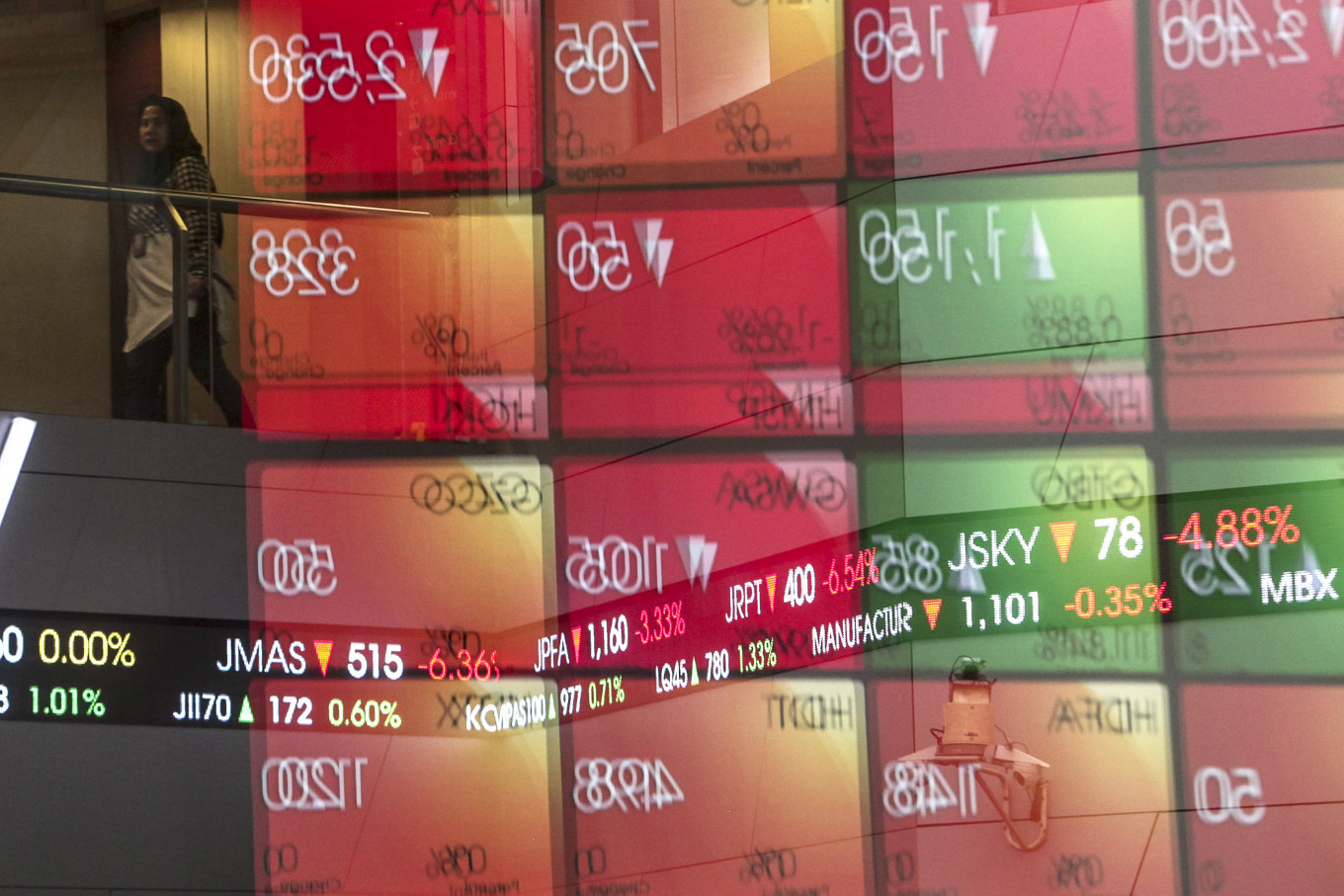Popular Reads
Top Results
Can't find what you're looking for?
View all search resultsPopular Reads
Top Results
Can't find what you're looking for?
View all search resultsSelling spree drags stocks a further 4.4% as global market rout continues
The JCI concluded its trading on Monday at 4,690.06, a level unseen since January 2016. The Indonesia Stock Exchange’s (IDX) main gauge has fallen 25.54 percent so far this year.
Change text size
Gift Premium Articles
to Anyone
I
ndonesia’s domestic stock benchmark, the Jakarta Composite Index (JCI), languished firmly in the red on Monday, falling by 4.4 percent as the global market rout continued, with COVID-19 fatalities now higher outside China, where the virus is believed to have originated, than inside it.
The JCI concluded its trading on Monday at 4,690.06, a level unseen since January 2016. The Indonesia Stock Exchange’s (IDX) main gauge has fallen 25.54 percent so far this year, making for a stubborn bear market, defined by a 20 percent slump from a recent high. Trading on the IDX was halted twice last week after circuit-breaking dives of 5 percent on both Thursday and Friday.
The JCI’s slump on Monday followed other Asian markets. The steepest decline was endured by Singapore, which slipped 5.25 percent in a day, while Hong Kong fell by 4.03 percent and Shanghai shrank by 3.4 percent. Tokyo slumped by 2.46 percent.
Despite the economy showing no signs of a rebound, foreign investors bought a total of Rp 238.11 billion in Indonesian shares during the day, especially in the negotiations and cash market. This indicated that the selling spree was led by domestic investors.
Most buyers pursued stocks with good fundamentals such as gold miner PT Merdeka Copper Gold (MDKA), diversified conglomerate PT Astra International (ASII) and petrochemical giant PT Barito Pacific (BRPT) during the day.
The plummeting index on Monday was primarily caused by a decline in blue-chip stocks as many fell by 7 percent, hitting the auto-rejection cap imposed by the bourse. Among them were consumer goods giant PT Unilever Indonesia (UNVR), which plunged by 7 percent, cigarette maker PT HM Sampoerna (HMSP), which declined by 6.95 percent, and state-owned lender PT Bank Negara Indonesia (BBNI), which was down by 6.92 percent.
Jasa Utama Capital equity analyst Chris Apriliony told The Jakarta Post on Monday that the IDX’s new auto-rejection rule was quite effective at preventing the JCI from plunging deeper amid the COVID-19 panic sweeping the market.
“The declines in share prices these days have not been based on well-determined actions but rather from a panic from investors, so the new auto-rejection rule can help reduce the effect on the JCI,” he said.
Last week, the bourse issued a new regulation that limited share price decline to 7 percent for all price ranges from the previous 10 percent.
Despite the crash, there were still 69 stocks that managed to make gains. Newly listed property developer PT Makmur Berkah Amanda (AMAN) rose 34.46 percent during the day, and energy services provider PT Apexindo Pratama Duta (APEX) grew 28.57 percent. Pharmaceutical firm PT Pyridam Farma (PYFA) was up 25.33 percent.










